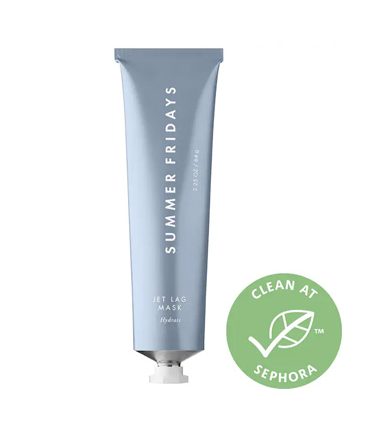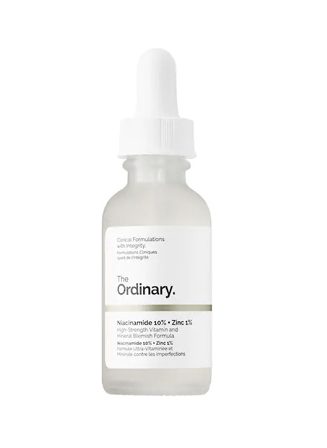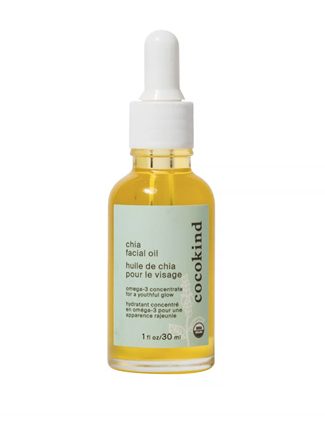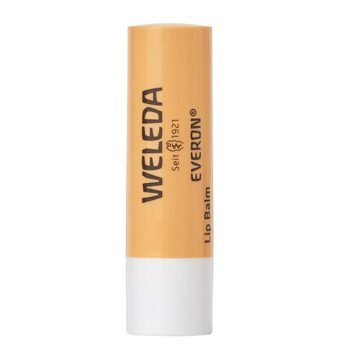So, it’s officially winter. I’m a winter-lover, dreaming of snow and hot cocoa and movie nights practically every summer night. But what I despise is how my skin reacts to my beloved cold weather. Instead of brimming with happiness and cheer like my insides, I’m struggling with dryness, flaking, irritation, redness, and more. What gives? And what’s worse: this year, I can’t even go to a Christmas market or holiday shop downtown to make up for it. I’m over you, 2020.
Get 20% off your first order with code EVERYGIRL20!
However, if I have to make the most of it, I will, and this year, it includes finally getting a handle on every beauty issue winter brings. What better use of our time at home than finally figuring out how to manage all those horrific side effects winter curses us with? We pulled out all of our best tips, from editors to dermatologists and estheticians, to help you with every skin ailment plaguing you this season. I sadly can’t tell you how the holidays will go this year, but I can make sure you look damn good no matter what you’re doing.
1. Dry Scalp
Try aloe gel
This was a recent recommendation from my hairdresser when I complained about an itchy, dry scalp. We already know aloe vera is calming, soothing, and moisturizing when we use it on our sunburned skin in the summer. It does the same for a dry scalp! She recommended I put pure aloe gel on my scalp the nights before I know I’ll shower in the morning and sleep with it on (if you’re a night shower-er, you could also apply it and remove after an hour). I use this time to do a scalp massage with the aloe, focusing it on the parts of my scalp that get the driest. It’s made a huge difference, and a huge container of aloe gel cost me about $5.
Use a BHA shampoo
If your scalp is dry and flaky, it might be because of product buildup—especially dry shampoo. Although we swear by it for keeping our style intact and skipping washes, stylists and trichologists (they focus on your hair health—trust me: they’re good people) aren’t as big of fans because dry shampoo powder can gunk up your roots and make your scalp feel dry and flaky. To combat it, try a shampoo with a BHA like salicylic acid. This will remove all of that buildup by chemically exfoliating the scalp. Make sure you keep the product at your roots and keep away from your ends as much as possible to prevent any dryness.
2. Dehydrated Skin
Use a cleansing balm/oil
Whether you’re double-cleansing or opting for an oil for extra moisture, it’s one of the easiest but most effective ways to combat skin dehydration, as well as the flakes and dry patches that might come along with it. Dehydration often happens if your skin is really stripped from exfoliating acids, retinol, and more, and when you use a harsher cleansing product or scrub your face, you only make it worse. Instead, focus on putting as much moisture back into your skin as possible.
I recently got a facial, and I fully expected the esthetician to gawk at my clogged pores and give me a regimen for her oiliest of clients, but she actually explained that my skin has been looking dull and clogged because it’s so dehydrated. She recommended taking a break from exfoliators and focusing on moisturizing my skin as much as possible to get my moisture back into my skin and balance the pH levels. Her biggest tip was swapping out my BHA cleanser for something much gentler and hydrating, such as a milky cleanser or a balm or oil. I usually use a cleansing oil to take off makeup, but she recommended even using it again as my second cleanse. She swore by a hydrating cleanser to put my skin back on track—and so far, she’s right!
“Sandwich” your acids with moisture
In the same vein as above, you want to focus on keeping your skin as moisturized as possible. As most know, acids and retinol can cause a lot of dryness and strip the skin; however, there are ways to still keep them in your routine (my skin freaks when I miss any more than a few days with my tretinoin) without all the irritation. Build your skincare routine around that drying product, making sure to include moisturizing products and ingredients before and after. An easy way to do this is by using a light moisturizer, then applying an acid, and then going over top with a facial oil. You can also do this with hydrating toners, sleeping masks, and more.
3. Eczema
Change up your body wash and moisturizer
As much as I love my shea body butter, when I’m dealing with an eczema flare-up on the body, I have to forgo anything scented and focus specifically on eczema-clearing and soothing products. These are some of my favorites that were recommended by many dermatologists I’ve seen over the years:
4. Redness
Try niacinamide
Niacinamide is one of the trendiest skincare ingredients right now—and it’s for good reason. Anything one ingredient can do, niacinamide can probably do better. It can help reduce the appearance of dark spots, protect and repair your moisture barrier, balance the sebum levels in your skin, and reduce texture—but it’s also a powerhouse in reducing redness and calming the skin. It’s an anti-inflammatory, so it can tackle the irritation and redness you might experience when your skin starts to get uber dry.
Color correct
If you’re experiencing lots of redness, a quick fix is to use a green color-correcting product. This one from Dr. Jart has been all over Instagram, Tik Tok, and YouTube lately, and the results are wild. Applied to the skin, this product visibly reduces redness temporarily; however, it contains calming ingredients and SPF that make it way more than a color corrector. It turns beige as you blend it in, so some people with light skin tones can even get away with it as a foundation. If you’re looking for something a little lighter weight, this Smashbox primer is a winner.
5. Keratosis Polaris
Exfoliate with an AHA
This is probably the most effective way to keep KP at bay. Many people notice KP gets worse as the season’s change and especially during the fall and winter. AHAs like lactic and glycolic acid or BHAs like salicylic acid are great for exfoliating the skin and loosening up the dry, dead skin and clearing out the clogged hair follicles in your skin. Many people with KP swear by these products (including me!) and even say they clear up their KP flare-ups in as little as a few applications.
Always blot skin dry after a shower
To keep your skin hydrated and avoid over-exfoliation (which can cause your flare-ups to get even worse because the area gets aggravated), make sure you blot your skin dry with a towel after a bath or shower instead of wiping or scrubbing at your skin. It’s a small step that makes a huge difference over time!
6. Overall Dry Skin
Moisturize with oils—often
It might not be enough to put your moisturizer on once in the morning and at night. Your skin might benefit from applying moisturizers or oils to the skin often throughout the day. Lately, I keep a moisturizing oil at my desk, so every time I notice my skin feels a little tight or I notice a dry patch, I apply a little extra (and always apply the excess to my hands!).
Use cool water to wash
Another recommendation after my most recent facial, as well as something I’ve heard from dermatologists time and time again, was to avoid using hot water or even warm water when washing your face. You can use warm water to first wet your face; however, try to use cool water to rinse the cleanser from your skin. Hot water can be harsh and remove oils from the skin (which is why you usually have to use warm water to remove a cleansing oil or balm), so when you’re just using a milky cleanser or something without a lot of oil, try skipping the hot water.
Be gentle when you wash your face
You should also be really gentle with your skin when you’re washing. Avoid loofahs and other harsh exfoliating products for the face and body; your hands or a soft hand towel can usually clean you up just as much as you need. Also, wash your face just like they would if you were getting a facial. They don’t do circular or scrubbing motions; they’re gentle and soft, usually lightly massaging the skin as they go. This is the same approach you should take on your face every day. Being too rough with your cleanser can lead to even more moisture loss over time.
Add a hyaluronic acid to your morning and night routine
Dermatologists swear by hyaluronic acid, a naturally-occuring acid within the skin, to deeply moisturize every layer of your skin. Luckily, it’s now available in tons of products at all different price points. When your skin is going through it (or always if you have dry skin), don’t forget this step. Use a hyaluronic acid at night and in the morning to keep up your moisture levels all day. Tip: always apply hyaluronic acid to damp skin. HA needs water to bond to and pull into the skin; it basically acts like a sponge when applied.
Add layers of hydration
On top of hyaluronic acid, you’ll want to make sure you’re including multiple products in your routine that offer hydration. For really dry skin, it usually isn’t enough to apply a moisturizer and go. If you’re looking to add more to your routine, a toner or essence is a great way to add lots of layers of moisture because you can apply toner over and over again. Some estheticians apply toner between every single step in your skincare routine—even on top of all of your acids and serums. This acts as a “sandwich” as explained above for any acids, but it also locks that moisture into every single step.
7. Chapped Lips
Use all of your moisturizing facial products on your lips
Don’t forget to bring all of those products you use on your face onto your lips! Serums, moisturizers, facial oils, and more should be used on your lips too.
Invest in a lip mask
An overnight lip mask is one of the best things you can do to up the hydration of your lips. Our editors swear by this one from Laneige. One night with this on, and your lips will feel brand spanking new.
Find a mask-friendly lip balm
My lips have been getting so dry from being under my mask all the time, but most of my squeezy-tube and tub lip balms are too sticky and get stuck to the inside. So, I put myself on the hunt for the best mask-friendly balms I could bring in my bag to reapply under my mask any time I was out and about (of course, making sure there was no one around when I did so).



 "
"




























